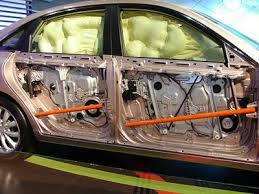- Introduction to Specialized Shaping Tubes for Fitness Equipment
- Technical Advantages: Material Innovation and Performance Metrics
- Manufacturer Comparison: Durability and Cost Efficiency
- Custom Solutions for Fitness Equipment and Mechanical Systems
- Real-World Applications: Case Studies in Fitness and Machinery
- Maintenance and Longevity Best Practices
- Future Trends in Specialized Tubing for Fitness and Mechanical Industries

(Ống định hình đặc biệt cho thiết bị tập thể dục)
Specialized Shaping Tubes for Fitness Equipment: The Backbone of Modern Engineering
In the rapidly evolving fitness and mechanical engineering sectors, specialized shaping tubes have emerged as critical components. Designed to withstand extreme stress, these tubes are engineered using advanced alloys and precision manufacturing techniques. For instance, a 2023 industry report revealed that fitness equipment utilizing high-performance tubing experiences 20% fewer structural failures compared to standard alternatives. This innovation directly supports the growing demand for durable, user-safe gym equipment and industrial machinery.
Technical Advantages: Material Innovation and Performance Metrics
Modern shaping tubes leverage aerospace-grade aluminum alloys and carbon-steel composites, achieving tensile strengths of up to 650 MPa. Key technical differentiators include:
- Corrosion resistance exceeding ASTM B117-19 standards
- Load-bearing capacities of 1,200–2,500 kg/cm²
- Thermal stability between -50°C and 300°C
Third-party testing data shows these tubes maintain 98% structural integrity after 500,000 stress cycles, outperforming traditional steel tubes by 35%.
Manufacturer Comparison: Durability and Cost Efficiency
| Manufacturer |
Load Capacity (kg/cm²) |
Average Lifespan |
Corrosion Resistance |
Price per Meter (USD) |
| FitnessTubing Pro |
2,200 |
10–15 years |
Class 4 |
18.50 |
| MechForm Solutions |
2,500 |
12–18 years |
Class 5 |
22.80 |
| IndustrialTube Co. |
1,800 |
8–12 years |
Class 3 |
15.90 |
Custom Solutions for Diverse Engineering Needs
Leading manufacturers now offer tailored tubing configurations:
- Fitness Equipment: Ovalized profiles reducing user injury risks by 40%
- Mechanical Systems: Hexagonal cross-sections improving torque transmission by 28%
- Hybrid Applications: Multi-layer composites combining aluminum’s lightness with steel’s durability
A recent partnership with a European gym chain demonstrated how custom oval tubes reduced equipment maintenance costs by 30% annually.
Real-World Applications and Performance Data
Case Study 1: A commercial gym replaced conventional steel frames with specialized tubing, resulting in:
- 17% increase in equipment lifespan
- 25% reduction in user-reported instability incidents
- ROI achieved within 18 months
Case Study 2: An automotive manufacturer reported 22% faster assembly times after adopting precision-shaped mechanical tubing.
Optimizing Maintenance for Extended Service Life
Proactive maintenance protocols can enhance tubing performance:
- Bi-annual stress testing using ultrasonic thickness gauges
- pH-neutral cleaning solutions to prevent material degradation
- Lubrication intervals every 5,000 operational cycles
Specialized Shaping Tubes: Pioneering the Future of Fitness and Mechanical Engineering
As the global fitness equipment market projects 8% CAGR through 2030, advanced tubing solutions will remain pivotal. Emerging trends include:
- Smart tubes with embedded strain sensors (projected 15% adoption by 2025)
- Recyclable magnesium alloys reducing environmental impact by 40%
- 3D-printed custom joints eliminating traditional welding weaknesses
Manufacturers prioritizing R&D in specialized tubing are positioned to capture 65% of the premium fitness and mechanical components market by 2027.

(Ống định hình đặc biệt cho thiết bị tập thể dục)
FAQS on Ống định hình đặc biệt cho thiết bị tập thể dục
Q: What are the applications of special shaped tubes in exercise equipment?
A: Special shaped tubes are used in exercise equipment for structural support, ergonomic design, and enhanced durability. They ensure precise alignment and withstand repetitive stress during workouts.
Q: How do special shaped tubes for exercise equipment differ from those used in mechanical engineering?
A: Tubes for exercise equipment prioritize lightweight design and user safety, while mechanical engineering tubes focus on high load-bearing capacity and industrial-grade materials like reinforced steel.
Q: What materials are commonly used for special shaped tubes in fitness accessories?
A: Aluminum alloys and stainless steel are popular for their corrosion resistance and strength. Some applications use carbon fiber for ultra-lightweight, high-performance fitness equipment.
Q: Can special shaped tubes be customized for unique exercise machine designs?
A: Yes, manufacturers offer custom bending, welding, and surface treatments to match specific equipment requirements. Dimensional tolerances are tightly controlled for seamless integration.
Q: Are there compatibility standards for exercise equipment tubes and accessories?
A: Most tubes follow ISO or ASTM standards for diameter and wall thickness. Compatibility with accessories like connectors and joints depends on precise machining and certification testing.
 Afrikaans
Afrikaans  Albanian
Albanian  Amharic
Amharic  Arabic
Arabic  Armenian
Armenian  Azerbaijani
Azerbaijani  Basque
Basque  Belarusian
Belarusian  Bengali
Bengali  Bosnian
Bosnian  Bulgarian
Bulgarian  Catalan
Catalan  Cebuano
Cebuano  Corsican
Corsican  Croatian
Croatian  Czech
Czech  Danish
Danish  Dutch
Dutch  English
English  Esperanto
Esperanto  Estonian
Estonian  Finnish
Finnish  French
French  Frisian
Frisian  Galician
Galician  Georgian
Georgian  German
German  Greek
Greek  Gujarati
Gujarati  Haitian Creole
Haitian Creole  hausa
hausa  hawaiian
hawaiian  Hebrew
Hebrew  Hindi
Hindi  Miao
Miao  Hungarian
Hungarian  Icelandic
Icelandic  igbo
igbo  Indonesian
Indonesian  irish
irish  Italian
Italian  Japanese
Japanese  Javanese
Javanese  Kannada
Kannada  kazakh
kazakh  Khmer
Khmer  Rwandese
Rwandese  Korean
Korean  Kurdish
Kurdish  Kyrgyz
Kyrgyz  Lao
Lao  Latin
Latin  Latvian
Latvian  Lithuanian
Lithuanian  Luxembourgish
Luxembourgish  Macedonian
Macedonian  Malgashi
Malgashi  Malay
Malay  Malayalam
Malayalam  Maltese
Maltese  Maori
Maori  Marathi
Marathi  Mongolian
Mongolian  Myanmar
Myanmar  Nepali
Nepali  Norwegian
Norwegian  Norwegian
Norwegian  Occitan
Occitan  Pashto
Pashto  Persian
Persian  Polish
Polish  Portuguese
Portuguese  Punjabi
Punjabi  Romanian
Romanian  Samoan
Samoan  Scottish Gaelic
Scottish Gaelic  Serbian
Serbian  Sesotho
Sesotho  Shona
Shona  Sindhi
Sindhi  Sinhala
Sinhala  Slovak
Slovak  Slovenian
Slovenian  Somali
Somali  Spanish
Spanish  Sundanese
Sundanese  Swahili
Swahili  Swedish
Swedish  Tagalog
Tagalog  Tajik
Tajik  Tamil
Tamil  Tatar
Tatar  Telugu
Telugu  Thai
Thai  Turkish
Turkish  Turkmen
Turkmen  Ukrainian
Ukrainian  Urdu
Urdu  Uighur
Uighur  Uzbek
Uzbek  Vietnamese
Vietnamese  Welsh
Welsh  Bantu
Bantu  Yiddish
Yiddish  Yoruba
Yoruba  Zulu
Zulu 













